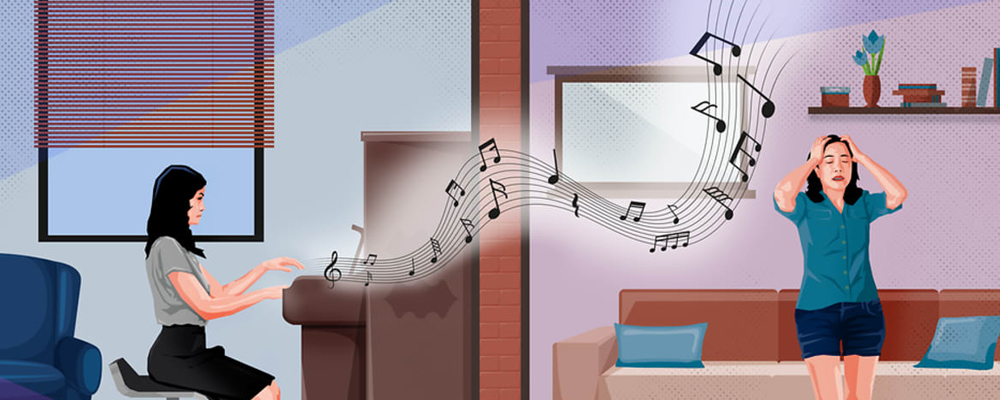Unauthorised or unjustified interference with someone’s right to use or enjoy the land, a property right, or any activity connected to it is considered a nuisance. The term “nuisance” has a narrower definition in law than it does in everyday speech. Not all annoyances will result in a successful nuisance suit. Minor annoyances that typically arise from everyday social interaction are not legally actionable.
Ingredients To Constitute Nuisance:
- Unlawful Act Committed by the Defendant: Committing a wrongful act is a prerequisite for the Case against nuisance to be brought. This can involve taking a course of action that seems on the surface to be illegal and irrational.
- Caveat: Despite the Plaintiff’s sensitivity and perception that Defendant’s action is unreasonable as a result of his sensitivity, the case for nuisance cannot be made even if the activity would appear to be reasonable to a wise man in general.
- Caused harm, loss, or inconvenience to the plaintiff: The plaintiff must actually suffer harm or inconvenience in order for the second fundamental need to apply. De minimis non curat lex, which states that the law will not take into account trifles, or minor harm alleged by the plaintiff out of his own sensitivity, comes into effect.
Grounds On Which Unreasonableness Is Decided:
- Character and Nature of the Community: Whether or not there is a private nuisance depends on the neighbourhood characteristics where the claimed annoyance occurred. It is impossible to predict the existence of a nuisance based solely on the object under examination; one must additionally take the surrounding environment and conditions into account.
- Claimant’s level of sensitivity: No nuisance has been committed if the damage is more attributable to the claimant’s sensitive property than to the defendant’s actions.
- Duration of Alleged Nuisance: The time period of the Alleged Nuisance might be used to assess whether a Private Nuisance has occurred. When an act lasts longer, there is a higher chance that it is irrational.
- Public Benefit: When deciding whether or not to issue an injunction, the court may take the public benefit into account.
- Malice: What might otherwise have been reasonable behaviour may become outrageous and bothersome if the defendant has malicious intentions.
Need A Legal Advice
The internet is not a lawyer and neither are you. Talk to a real lawyer about your legal issue

Types of Nuisances:
- Public Nuisance: According to the Indian Penal Code, a nuisance is an act that injures, endangers, or annoys individuals who live nearby or who otherwise occupy the property, or that injures, endangers, or infuriates people who may need to use a public right. Public nuisances have an impact on society as a whole, or at least a sizable section of the population, as well as any potential property rights that individuals in the society may have.
- Private Nuisance: A private nuisance is an action that affects a specific individual or individuals as opposed to the general public. To make a claim of a private nuisance, the claimant must have a stake in the property where the annoyance occurs.
- Claimant: A person must possess or have a claim to the land in order to have an “interest in land.” A claim of a private nuisance can be made by owners, leaseholders, or tenants who have a stake in the land. This is evident in the rule that the plaintiff in a private nuisance case must have an interest in the affected property or exclusive possession of it in order to bring a claim. In actuality, a person is considered to have an interest in the land if they are in sole control of it.
Legal Action Against Neighbours for Nuisance:
- Damages: In public nuisance cases, where a legal complaint is filed the plaintiff must show unusual harm in order to win the right to compensation. The purpose of damages awarded in tort cases is often to reinstate the injured party in the position they would have been in had the wrongdoing not occurred. Damages are monetary awards made to a person in a legal case to make up for loss or harm.
- Injunctive Relief: A special court order that compels a party to perform or refrain from performing particular acts is known as an injunction and it can be obtained by taking action against a neighbour. It is both a legal and equitable remedy. Injunctions are not automatically available. The court ruled in a case that the discretion to refuse an injunction should only be used in exceptional circumstances, such as when the damage to the offended party’s legal right is minor, can be adequately compensated by a small cash instalment, and would be unfair to the litigant to concede an injunction.
- Criminal Indictment (if the nuisance is public): A formal accusation of misconduct made against a person is called an indictment. It is usual practice to obtain indictments for claims of legal offences. In the trial court, an indictment is used instead of a complaint.





 Talk to a Lawyer
Talk to a Lawyer